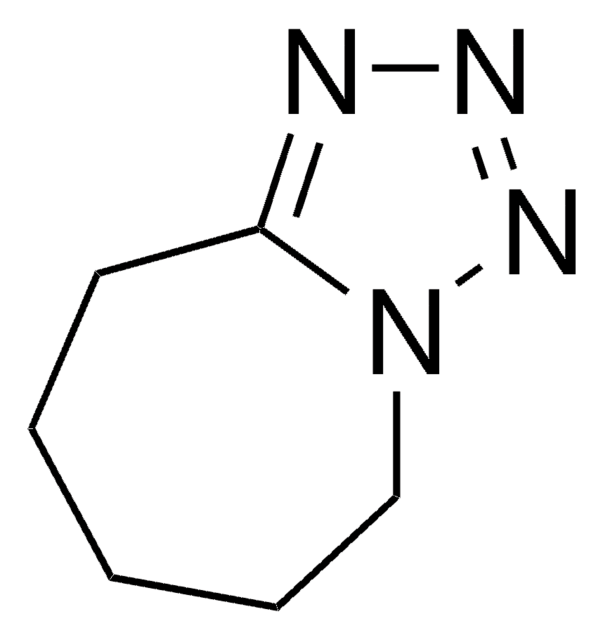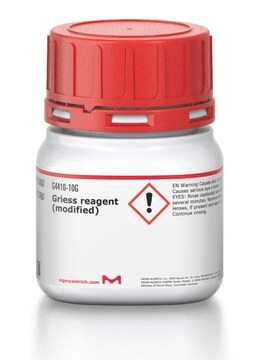31443
Sodium nitrite
puriss. p.a., ACS reagent, reag. Ph. Eur., ≥99%
About This Item
Produits recommandés
Qualité
ACS reagent
puriss. p.a.
Agence
reag. Ph. Eur.
Pression de vapeur
<0.0001 hPa ( 25 °C)
Essai
≥99%
Forme
powder or crystals
Température d'inflammation spontanée
914 °F
Impuretés
≤0.001% heavy metals (as Pb)
pH
9
Pf
271 °C (lit.)
Traces d'anions
chloride (Cl-): ≤50 mg/kg
sulfate (SO42-): ≤50 mg/kg
Traces de cations
Ca: ≤20 mg/kg
Fe: ≤10 mg/kg
K: ≤50 mg/kg
Chaîne SMILES
[Na+].[O-]N=O
InChI
1S/HNO2.Na/c2-1-3;/h(H,2,3);/q;+1/p-1
Clé InChI
LPXPTNMVRIOKMN-UHFFFAOYSA-M
Vous recherchez des produits similaires ? Visite Guide de comparaison des produits
Description générale
Application
Mention d'avertissement
Danger
Mentions de danger
Conseils de prudence
Classification des risques
Acute Tox. 3 Oral - Aquatic Acute 1 - Eye Irrit. 2 - Ox. Sol. 3
Code de la classe de stockage
5.1B - Oxidizing hazardous materials
Classe de danger pour l'eau (WGK)
WGK 3
Point d'éclair (°F)
Not applicable
Point d'éclair (°C)
Not applicable
Faites votre choix parmi les versions les plus récentes :
Déjà en possession de ce produit ?
Retrouvez la documentation relative aux produits que vous avez récemment achetés dans la Bibliothèque de documents.
Les clients ont également consulté
Notre équipe de scientifiques dispose d'une expérience dans tous les secteurs de la recherche, notamment en sciences de la vie, science des matériaux, synthèse chimique, chromatographie, analyse et dans de nombreux autres domaines..
Contacter notre Service technique











